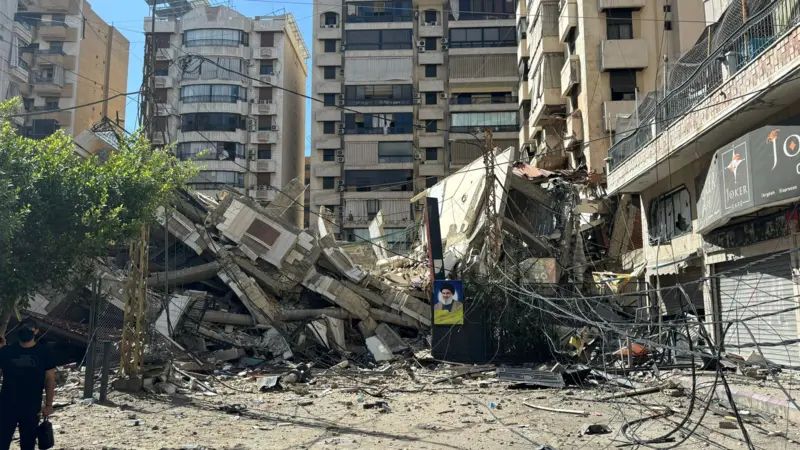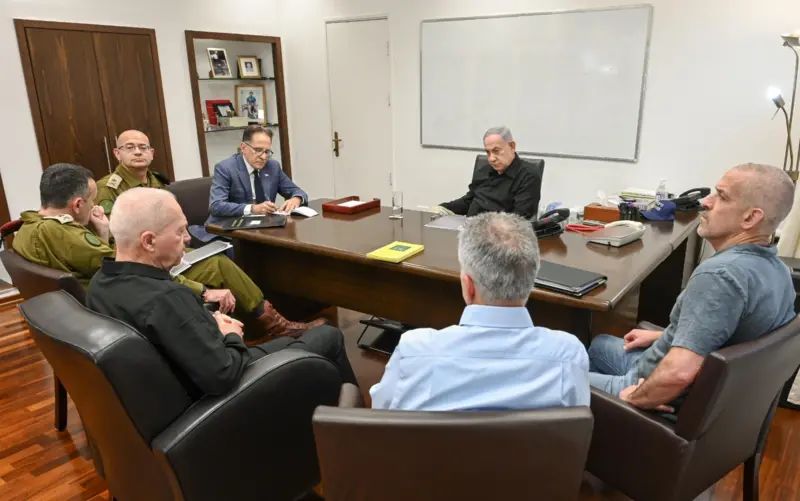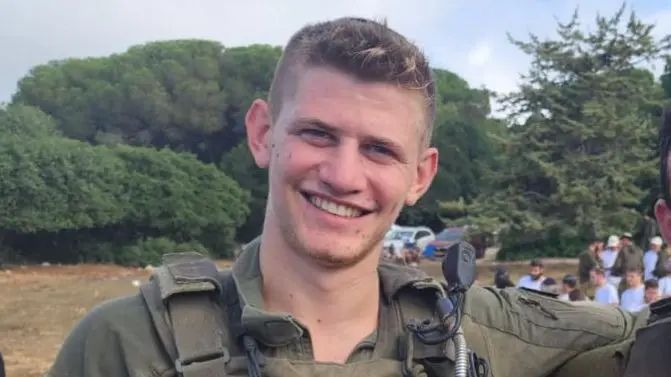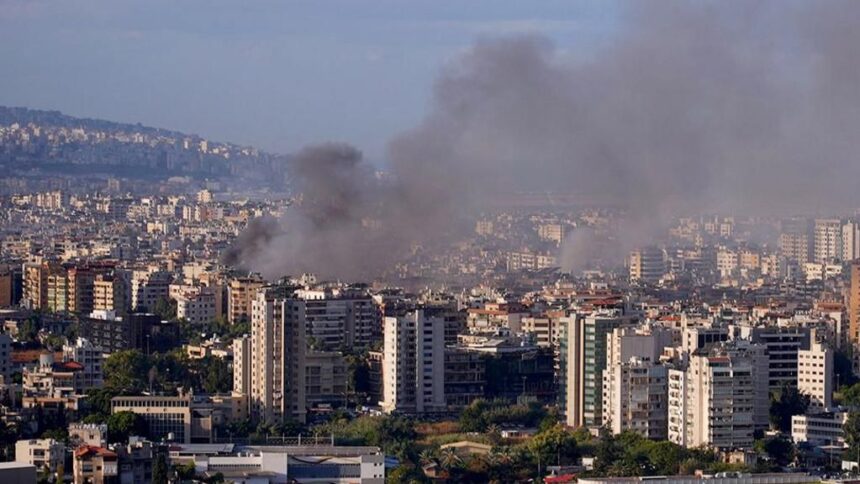By Nakiwala Barbra
The conflict between Israel and Hezbollah has intensified dramatically, with fierce ground battles erupting in southern Lebanon following an Israeli invasion. Backed by Iran, Hezbollah is proving a formidable opponent, raising concerns that the conflict could spiral into a broader regional war involving key powers like Iran and Israel.
The Israel-Hezbollah conflict, once seen as a localized skirmish, has escalated into a dangerous proxy war with international implications. With Iran supplying Hezbollah with advanced weaponry, including missiles and drones, the militia has grown into a powerful force capable of challenging Israel’s military might.

The ongoing battles in southern Lebanon highlight the shifting balance of power in the region and underscore the broader geopolitical struggle between Israel and Iran.
Israel’s ground invasion into Lebanon, which followed an Iranian missile strike targeting key Israeli cities like Tel Aviv and Jerusalem, marks a dangerous turning point in the conflict. The missile attack by Iran, consisting of over 180 missiles, was viewed by Israel as a direct provocation. Israeli Prime Minister Benjamin Netanyahu vowed swift retaliation, launching the ground operation with the goal of crippling Hezbollah’s military infrastructure. Hezbollah, however, has mounted a stiff defense, using its Iranian-supplied precision-guided missiles, drones, and anti-tank systems to inflict serious damage on Israeli forces.
The fighting in southern Lebanon is proving to be a brutal test of wills. Hezbollah, long considered a guerrilla force, has evolved into a more sophisticated military organization thanks to Iran’s extensive support, which includes not just weaponry but also tactical training and funding.
Hezbollah’s fighters have used the mountainous terrain to their advantage, engaging Israeli troops in close combat while making it difficult for Israeli airstrikes to hit their targets without causing civilian casualties. This has drawn international criticism as the civilian death toll rises, with over 1,000 Lebanese reported dead and nearly a million people displaced from their homes.
The deeper involvement of Iran in this conflict has raised alarm globally, as Tehran’s support for Hezbollah makes the militia a central player in its broader strategy to project influence in the Middle East.

Iran sees Hezbollah as a key part of its power network, using the group to challenge Israeli dominance in the region. The conflict, while focused on Lebanon, is increasingly being viewed as part of a larger proxy war between Israel and Iran, with potential to spill over into other parts of the region, including Syria and Iraq, both of which have strong ties to Iran.
Despite Israel’s military superiority, including its advanced air defense systems and sophisticated intelligence network, it faces significant challenges on the ground. Hezbollah’s fighters are well-prepared and deeply entrenched, having built extensive underground tunnel networks and fortified positions in southern Lebanon. These defensive tactics, combined with their missile capabilities, have slowed Israel’s advance, leading to a protracted and bloody conflict.
Hezbollah’s leader, Hassan Nasrallah, remains defiant. In a speech broadcast to supporters, he pledged to continue resisting the Israeli invasion, framing the fight as a battle for Lebanon’s sovereignty.
Nasrallah’s fiery rhetoric has rallied his fighters, who have demonstrated a high level of discipline and coordination, further complicating Israel’s efforts to neutralize the group. Hezbollah’s ability to sustain heavy casualties while continuing to pose a significant threat underscores the effectiveness of Iranian training and strategic guidance.

The humanitarian toll of the conflict is staggering. Southern Lebanon has been devastated by the fighting, with entire towns reduced to rubble by Israeli airstrikes. The displacement of civilians, many of whom are fleeing to northern Lebanon or crossing into neighboring countries, is creating a massive refugee crisis. Aid agencies are struggling to keep up with the needs of the displaced, with food, water, and medical supplies running dangerously low. The United Nations has called for an immediate ceasefire, warning that the region is on the brink of a humanitarian disaster.
Meanwhile, the international community is watching with growing concern. The United States and European Union have expressed strong support for Israel’s right to defend itself against Hezbollah, but they have also called for caution, urging Israel to avoid actions that could escalate the conflict further.

Russia and China, both key players in the region, have also weighed in, with Moscow warning that the conflict could destabilize the entire Middle East. Russian officials have emphasized the need for diplomacy, calling on both Israel and Iran to show restraint. China, too, has called for negotiations, though the prospects for peace seem remote as both sides continue to escalate their military operations.
The broader fear is that the conflict could expand beyond Lebanon and Israel, drawing in other regional actors. Syria, a close ally of both Iran and Hezbollah, has been watching the situation closely, with the potential to become directly involved if the fighting spreads further. Iraq, where Iran wields considerable influence through its support of Shiite militias, could also be pulled into the conflict. The risk of a larger regional war is becoming more real as the fighting intensifies.

For Israel, this conflict is not just about neutralizing Hezbollah; it’s about sending a clear message to Iran. Israeli officials see Iran as the primary threat to their country’s security, and by targeting Hezbollah, Israel hopes to weaken Iran’s influence in Lebanon and beyond. However, this strategy carries significant risks.
Hezbollah is deeply entrenched in Lebanese society and politics, making it difficult to fully eliminate the group without causing further instability in the region. Additionally, Iran’s continued support for Hezbollah means that the group has access to a virtually unlimited supply of weapons and resources, making a quick resolution to the conflict unlikely.
As ground battles continue and civilian casualties mount, the question remains whether diplomacy can bring about a ceasefire before the conflict spirals further out of control. Both sides appear committed to their military strategies for now, but the international pressure for a negotiated settlement is growing. If left unchecked, the Israel-Hezbollah conflict could become the flashpoint for a wider regional war, with devastating consequences for the Middle East.








